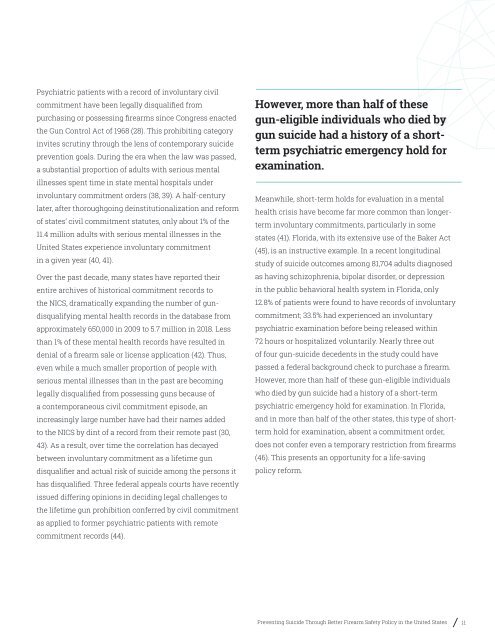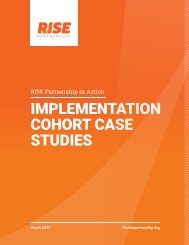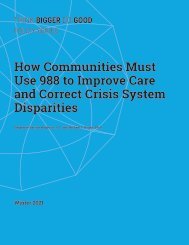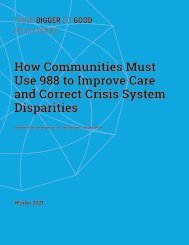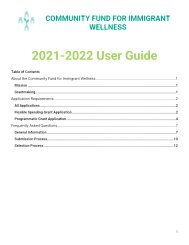PreventingSuicide_FireArmSafety_9_18_2020
You also want an ePaper? Increase the reach of your titles
YUMPU automatically turns print PDFs into web optimized ePapers that Google loves.
Psychiatric patients with a record of involuntary civil<br />
commitment have been legally disqualified from<br />
purchasing or possessing firearms since Congress enacted<br />
the Gun Control Act of 1968 (28). This prohibiting category<br />
invites scrutiny through the lens of contemporary suicide<br />
prevention goals. During the era when the law was passed,<br />
a substantial proportion of adults with serious mental<br />
illnesses spent time in state mental hospitals under<br />
involuntary commitment orders (38, 39). A half-century<br />
later, after thoroughgoing deinstitutionalization and reform<br />
of states’ civil commitment statutes, only about 1% of the<br />
11.4 million adults with serious mental illnesses in the<br />
United States experience involuntary commitment<br />
in a given year (40, 41).<br />
Over the past decade, many states have reported their<br />
entire archives of historical commitment records to<br />
the NICS, dramatically expanding the number of gundisqualifying<br />
mental health records in the database from<br />
approximately 650,000 in 2009 to 5.7 million in 20<strong>18</strong>. Less<br />
than 1% of these mental health records have resulted in<br />
denial of a firearm sale or license application (42). Thus,<br />
even while a much smaller proportion of people with<br />
serious mental illnesses than in the past are becoming<br />
legally disqualified from possessing guns because of<br />
a contemporaneous civil commitment episode, an<br />
increasingly large number have had their names added<br />
to the NICS by dint of a record from their remote past (30,<br />
43). As a result, over time the correlation has decayed<br />
between involuntary commitment as a lifetime gun<br />
disqualifier and actual risk of suicide among the persons it<br />
has disqualified. Three federal appeals courts have recently<br />
issued differing opinions in deciding legal challenges to<br />
the lifetime gun prohibition conferred by civil commitment<br />
as applied to former psychiatric patients with remote<br />
commitment records (44).<br />
However, more than half of these<br />
gun-eligible individuals who died by<br />
gun suicide had a history of a shortterm<br />
psychiatric emergency hold for<br />
examination.<br />
Meanwhile, short-term holds for evaluation in a mental<br />
health crisis have become far more common than longerterm<br />
involuntary commitments, particularly in some<br />
states (41). Florida, with its extensive use of the Baker Act<br />
(45), is an instructive example. In a recent longitudinal<br />
study of suicide outcomes among 81,704 adults diagnosed<br />
as having schizophrenia, bipolar disorder, or depression<br />
in the public behavioral health system in Florida, only<br />
12.8% of patients were found to have records of involuntary<br />
commitment; 33.5% had experienced an involuntary<br />
psychiatric examination before being released within<br />
72 hours or hospitalized voluntarily. Nearly three out<br />
of four gun-suicide decedents in the study could have<br />
passed a federal background check to purchase a firearm.<br />
However, more than half of these gun-eligible individuals<br />
who died by gun suicide had a history of a short-term<br />
psychiatric emergency hold for examination. In Florida,<br />
and in more than half of the other states, this type of shortterm<br />
hold for examination, absent a commitment order,<br />
does not confer even a temporary restriction from firearms<br />
(46). This presents an opportunity for a life-saving<br />
policy reform.<br />
Preventing Suicide Through Better Firearm Safety Policy in the United States 11


